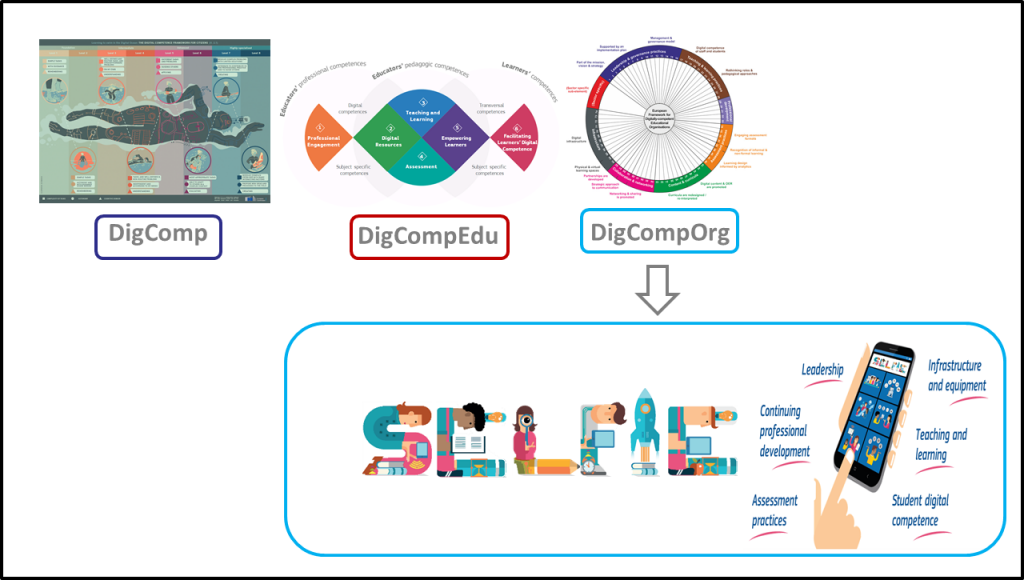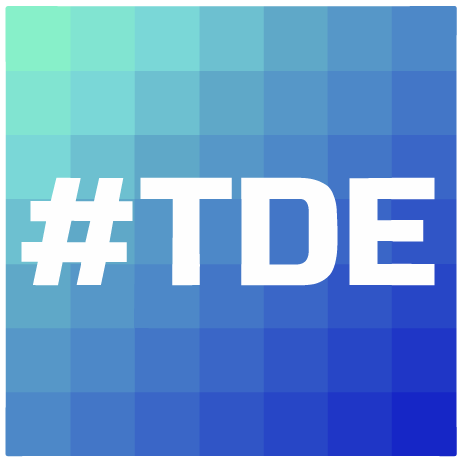SELFIE: supporting the digital transformation of schools
SELFIE is a free, online tool which supports schools (upper primary, secondary and VET) in embedding digital technologies in teaching and learning and digital skills development. It is a flagship initiative of the European Commission Digital Education Action Plan (adopted January 2018), which sets out 11 actions to help Member States to meet challenges and opportunities of education in the digital age.
Since the launch of SELFIE by Commissioner Navracsics on 25 October last year, the tool has been used by over 430,000 users (teachers, schools leaders and students) in 38 countries.
How SELFIE works?
Staff and students answer a series of questions on technology use in different areas of school life. The tool is modular and schools can set up SELFIE in a way that suits them (e.g. adding questions, choosing when to run the exercise, selecting from 31 language versions). Following this, the school gets an interactive report with data and insights into strengths and weaknesses. This can be used as a basis for planning and improvement. SELFIE can be repeated annually at the school to gauge progress.
Where do schools learn about SELFIE?
Although the tool can be used freely by any school anywhere in the world, we have seen that uptake is highest where national ministries/regional authorities have actively endorsed SELFIE. This includes, for example, organising information and training sessions and/or launch events on the tool (Spain has produced a dedicated MOOC on SELFIE, Flanders has created video material on the tool, Slovenia runs info sessions for school leaders, Turkey is organising webinars for schools and Serbia a training programme for 3,600 teachers). In Andalucia, SELFIE is proposed as the self-reflection tool to be used in the PRODIG programme that helps schools with the digital transformation.
See SELFIE video: https://ec.europa.eu/education/schools-go-digital_es
SELFIE’s sister projects: Supporting the digital capability of teachers and citizens
The questions and statements in SELFIE and the thinking behind the tool were based on the European framework for Digitally Competent Educational Organisations (DigCompOrg), published by the Commission in 2015. The framework aims to support schools, colleges, universities and policy makers in dealing with the digital transformation of education and training practices. Digital change in society and the economy not only affects organisations, but also educators, students and, more broadly, all citizens. To address these challenges, two related digital competence frameworks have been developed by the Commission: DigComp: The European Digital Competence framework for citizens and DigCompEdu: The European Digital Competence framework for educators.

Why these frameworks?
Digital competence frameworks are reference frameworks which can help establish a shared language, understanding and vision for learning in the digital age within and across organisations, countries and at European level. Before the frameworks, there had been agreement that digital competences were needed, but little work had been done on what these should actually be, how to define and describe them, what different levels of proficiency could look like.
To reach agreement on a European framework, plenty of groundwork needed to be done, including looking at existing research, frameworks and practices, as well as seeking consensus with education experts and stakeholders from across Europe.
European Digital Competence framework for citizens (DigComp)
The European Digital Competence framework for citizens, DigComp, sets out the most important competences (knowledge, skills, and attitudes) people need to live and thrive in our increasingly digital world.
https://audiovisual.ec.europa.eu/embed/index.html?ref=I-163140&lg=EN
A total of 21 competences are defined around five areas:
– information and data literacy;
– communication and collaboration;
– digital content creation;
– safety;
– problem solving.
DigComp was first published in 2013 and an updated version, DigComp 2.0 was released in June 2016. A third edition of the framework, DigComp 2.1 was published in May 2017 focusing on detailed proficiency levels and how these could be applied, using the metaphor of “learning to swim in the digital ocean”.
The framework is currently used (entirety or adapted) in more than 14 EU countries, for example, for curricula development, student assessment, training and upskilling schemes for adults as well as in digital skills strategies and policies. The European Training Foundation uses the framework in their work with non-EU countries, including Western Balkans countries, to support reform of their education, training and labour market systems. DigComp is also used by UNESCO to develop a Global Digital Literacy framework as part of Sustainable Development Goal 4. More examples of how the framework for citizens is being used can be found in the “DigComp into action”, a user guide to the European Digital Competence Framework.
The framework also formed the basis for the definition of digital competence in the European Commission’s Eight Key Competences for Life Long Learning which sets out key skills needed by all learners today.
Framework for educators (DigCompEdu) The Digital Competence Framework for Educators (DigCompEdu) published in 2017, sets out the digital skills and competences educators need in contemporary teaching environments. It is designed for educators at all levels, from pre-primary to vocational, higher and adult education. A total of 22 educator-specific competences for teaching are set out in six competence areas:
– Área 1: – professional environment;
– Área 2: – sourcing, creating and sharing digital resources;
– Área 3: – managing and orchestrating the use of digital tools in teaching and learning;
– Área 4: – digital tools and strategies to enhance assessment;
– Área 5: – the use of digital tools to empower learners;
– Área 6: – facilitating learners’ digital competence.

Following the publication of the framework an online community has been set up, inviting stakeholders interested in using and implementing the framework to exchange experiences and training materials. This community, currently around 170 members, brings together representatives of national and regional agencies, researchers, training providers and educators.
We are currently piloting a self-reflection questionnaire (DigCompEdu Check-in1) for educators based on the framework for primary, secondary, vocational and higher education. The self-reflection exercise has already been completed by around 10.000 educators, allowing them to reflect on their digital practices, test their practical knowledge and guide them in further developing their skills. Different modules are offered that can be used flexibly, either by individual educators for their personal professional development or integrated into training courses. Based on psychometric analysis of the pilot results, the instrument will be revised and re-launched beginning of 2020.
About the author
Yves Punie is senior scientist and Deputy Head of Unit at the European Commission Joint Research Centre in Seville, Unit Human Capital and Employment. He is leading its research and policy activities on “ICT for Learning and Skills”.

